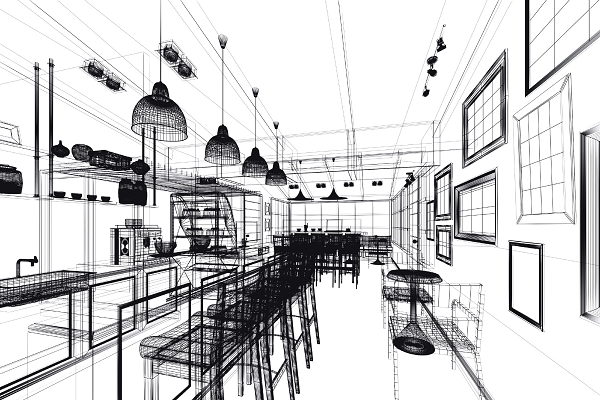Adding foodservice requires FMs to switch up their strategies.


Adding foodservice requires FMs to switch up their strategies.


Co-Founder, 23rd Group LLC
“The FM industry is not for everyone. It’s a tough and challenging field, fraught with stress, but so amazingly rewarding.”
On Cofounding the 23rd Group
“I was inspired to build a superior facility management company, whose commitment and ethos is firmly rooted in solving industry challenges, confronting industry norms and implementing bold solutions to advance customer objectives.”
Words of Wisdom
“Listen to your customers about their challenges, pain points and what keeps them up at night. Then, deliver for them.”
Advice for someone starting out?
“Be committed to industry education and personal improvement measures, join industry committees, develop a keen sense of vision to sidestep challenges and capitalize on opportunities. Most importantly, never, ever get comfortable.”
Motivator-in-Chief
“My day starts with saying ‘Good morning’ to each employee and ensuring they are engaged in the process and passionate about delivering superior customer service. I also review and analyze performance and financial reporting metrics to identify trends and isolate potential issues and strategies that can be implemented both internally and externally.”

RFMP, Senior Manager, Facilities Maintenance, The Fresh Market
16 years Facilities Experience
“I plan to stay in the FM field for the foreseeable future. I enjoy developing people and processes to support our operations partners. Every day is fun and exciting as the team solves issues and continues to increase their knowledge.”
Thoughts on the restaurant retail trend?
“Today’s guests want more experiences and to be able to do more tasks in one place. Our mission at The Fresh Market is to inspire our guests to make everyday eating extraordinary.”
Benefits of being a Connex member?
“Connex is a great resource for learning information about the facilities industry and about specific discipline areas. The best tool is the Connex Community. You type in a question, and experts from around the Connex world respond with information and advice to help.”
Advice for someone starting out?
“Learn as much as you can as quickly as you can. Take advantage of peers and suppliers to increase your knowledge base. If you do not know what you are looking at or how to make a repair decision, it can be very stressful. Lean on others to help you as you learn and grow.”
A Typical Day
“I base my priorities on our work order system based upon what is critical for our operations partners. Helping [them] solve their maintenance needs so that our guests receive the best shopping experience possible is our goal every day.”

Annual report launches this fall.
Coming this September: Connex’s industry-leading report on the latest trends driving the facilities management industry. These include regulatory and M&A trends; labor shortages, diversity and women in FM; retail-tainment; financial and technology trends; microgrids; and new store concepts.
These trends are driving change across the industry and will require facilities executives to adapt new strategies and tactics to succeed. Look for the print and digital versions this fall.
Keep an Eye Out
Visit connexus.connexfm.com for more information.

New online education helps FM professionals succeed.
Are you new to Facilities Management (FM)? Are you assuming a new FM role? Are you looking for traditional FM roles explained in easy to understand terms?
Competencies of Facilities Management in Multi-Site & Retail is an intermediate online education series that features eight comprehensive courses of general skills needed by facilities management professionals. The series, developed by Michel Theriault, Principal, Strategic Advisor, FM Insight Consulting Ltd., provides updated information previously found in the “RFMP Study Courses.”
“The Competencies of FM is a resource for seasoned FM professionals. It describes major processes step-by-step and allows you to understand how your industry knowledge can be applied to everyday FM situations,” said Mike McAfee, RFMP, Nothing Bundt Cakes, Manager of Facilities.
Managing Routine and Emergency Repair/Replacement Processes
This course discusses the routine and emergency repair/replacement request process. It includes collecting information, analyzing and making decisions, and then acting to resolve the request.
Preventive Maintenance
Managing scheduled, routine maintenance activities on equipment is explained. It involves establishing the maintenance activities, managing through completion, dealing with follow-up requests and ensuring work is completed properly.
Managing a Project Roll-Out
This course describes Project Roll-Outs and the project management techniques you can use to make your Roll-Outs more successful. It includes information about traditional project phases such as initiating the project, defining the project, developing a project plan, executing the Project Roll-Out and, finally, closing out the project.
New Store Turnover
How to open a new store that has been assigned to you for operation and maintenance is highlighted in this course. It includes information on lease responsibilities, interfaces and communications, and procuring services for the store.
Closing an Existing Store
This course explains how to close an existing store, whether in a leased location or a corporate-owned building.
Maintaining Accurate Database Information
Maintaining and using service, or other related data, is discussed in this course. It describes how to capture and use the data; keep data up-to-date; create reports; analyze and use it for making repair, maintenance and replacement decisions; as well as assessing performance.
Managing Assets
This course discusses how to manage building assets. It includes information about assessing condition, code requirements, health and safety, operational impacts and making repair-and-replace decisions, as well as assessing preventative maintenance needs.
Executing a Disaster Management Plan
This course will help with development and implementation of a Disaster Management Plan for your stores. It involves developing a plan, responding to disasters and suggested follow-up actions.
Sign Up Now
Pricing:
Individual Course
$80 member
$150 nonmember
Bundle
$495 members
$695 non-members
Visit connexfm.com/connexexplore for more information.

How to navigate the process of permitting when adding foodservice to multi-site facilities.
From redesigning the floor plan and layout of the store to coordinating electrical, plumbing and construction, facility managers (FMs) adding foodservice to their multi-site facilities have a seemingly endless number of tasks — many of which require permits. And while these permits may seem like an annoying formality on a long list of to-dos, they’re actually a vital part of a safe and successful expansion into foodservice. Ignoring them could mean safety hazards, exorbitant fines, delayed construction dates or, worse, complete project shutdown.
So what steps should FMs take during the planning stages of a project to ensure they have the right permits in place and avoid these issues? Permitting expert Vaun Podlogar, President, State Permits Inc., a company that manages building permits across the United States and Canada, gave us his advice.
Assessing Your Permit Needs
Before the project even breaks ground, FMs should ask for advice from peers who have similar experience locally or consult a permit management firm. Consulting your building’s architect and any engineers involved with the property is necessary as well.
For FMs who are adding foodservice to their facility, Podlogar relayed a checklist of specific permit categories to plan for:
Keep in mind, each type of permit requires proper research. The municipality and county a business is located in may have vastly different requirements, creating some confusion about overlapping obligations. Podlogar said that necessary due diligence can make the application process easier. “Take, for example, four different businesses at each corner of a four-way cross street,” he said. “Each one of those four corners may have different zoning requirements, even if they’re part of the same jurisdiction, so each business may require unique permits.”
It’s also important to recognize that local/state laws change all the time, so the permits needed for a past project may not be the same for the next one.
Applying for Permits: Who To Use?
When the time comes to apply for permits, FMs must determine who is up for the task. Podlogar presented the options, with issues to consider for each:
Podlogar explained how his company handles all of the red tape involved in municipal requirements through Planning and Zoning, the Health Department and the Building Department.
Avoiding Dire Consequences
The process of securing the right permits does more than just ensure you’re up to code — it also helps you avoid serious repercussions due to violations, including hefty fines or delays.
“The biggest consequence would be that they shut your store down until you agree to comply,” Podlogar said. “Local officials can also fine your business. If you don’t correct the violation, these fines can double, triple or even quadruple over time.”
Because statutes are always evolving, and projects always have unexpected obstacles, violations can happen any time, during even the most well-organized projects — that’s where it pays to have the help of a professional.
“Existing violations may creep up as you’re planning the project,” Podlogar said. “So, this is where the help of a permit managing company, or other field experts, would be extremely beneficial. We ask an extensive list of questions to dig deep and uncover important information about the project to avoid violations and resolve the ones that do come up.”
The project itself may be tiring and stressful, but FMs must remember to stay on top of permitting issues for their new foodservice addition. Seek out experts or peers in your area who have experience managing the process. Not being up-to-code means valuable time lost and financial losses for your company, even before the eatery is up and running.
Stepping Stones
Vaun Podlogar, President, State Permits, Inc., identified the immediate permitting steps an FM should take when adding a kitchen or restaurant
to an existing store: